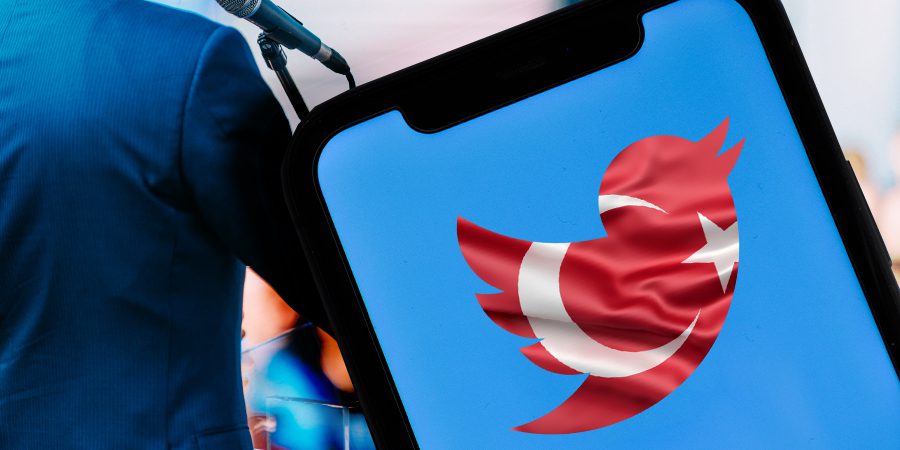In this article, we’ll delve into the controversy surrounding Twitter’s decision to restrict certain content ahead of Turkey’s consequential presidential election.
This action has sparked debate globally, with critics raising questions on censorship, while Twitter defends its efforts to maintain platform availability for Turkish users during the election period.
Key Takeaways:
- Twitter is facing scrutiny for restricting content related to Turkey’s presidential election.
- The decision was justified by Twitter as a necessary action to ensure the platform remains available to Turkish users.
- Critics have condemned the move, citing concerns of free speech censorship.
- Twitter CEO, Elon Musk, engaged with users, implying that the Turkish government had influenced the decision.
- The election is expected to be hotly contested, with the fate of incumbent President Recep Tayyip Erdoğan hanging in the balance.
- This incident has spotlighted the larger issue of digital censorship in Turkey, with human rights organizations warning of potential nationwide censorship by Erdoğan’s government.
Twitter’s Content Restrictions: A Proactive Measure or Censorship?
As the clock ticks towards Turkey’s presidential election, Twitter decided to implement certain restrictions on its platform.
These limitations, it explained, were to make sure the site remains functional amid an anticipated surge of election-related posts.
The company’s Global Government Affairs account clarified this action, stating they were restricting access to some content within Turkey, but such content would remain accessible to the rest of the world.
However, this move was met with significant backlash, with many users interpreting it as an act of censorship.
The line between proactive measure and censorship, it seems, has blurred, causing a cascade of discussions regarding the freedom of speech on digital platforms.
Elon Musk’s Engagement and the Response of Users
In the face of this storm of criticism, Elon Musk, Twitter’s CEO, chose to directly engage with users on the platform.
His responses, however, seemed to stir more apprehension.
He suggested that the Turkish government had reached out to Twitter regarding the election, further intensifying the debate on whether this was a justified action or a concerning precedent of government interference on a global platform.
Musk defended Twitter’s decision, explaining that the alternative was to have Twitter completely throttled, making the platform entirely inaccessible for Turkish users.
The High-Stakes Presidential Election in Turkey
The election at the heart of this matter is no ordinary political event.
The incumbent president, Recep Tayyip Erdoğan, is the longest-held incumbent in Turkey, having held power for over two decades.
His reign, coupled with his alignment with the conservative and Islamist Justice and Development Party (AKP), has marked him as a strong nationalist figure.
Yet, he is being seriously challenged by the parliamentary-focused opponent Kemal Kılıçdaroğlu.
Recent natural disasters in Turkey have also played a role in shaping the voter sentiment, with many citizens keeping in mind the government’s response to these crises as they decide their vote.
The Larger Picture: Digital Censorship in Turkey
Beyond the immediate issue of Twitter’s content restrictions, this incident brings to the forefront the larger concern of digital censorship in Turkey.
Human rights organizations have expressed apprehensions about the potential for nationwide censorship by Erdoğan’s government, indicating a possible digital effort to control the narrative around the election’s outcome.
Senior technology researcher at Human Rights Watch, Deborah Brown, has voiced concerns about the Turkish government’s increasing attempts to control social media and independent online news sites in the run-up to this election.
She highlights the need for voters in Turkey to rely on social media for independent news and to express their views freely, despite the government’s attempts to wield control over these platforms.
Conclusion:
The case of Twitter’s content restrictions in Turkey serves as a stark reminder of the intricate dance between social media platforms, local laws, and the principles of free speech.
As the world watches the unfolding of this crucial election in Turkey, it’s not just the results that are being closely followed, but also the implications this event holds for the future of digital discourse and the role of social media in shaping and influencing democratic processes globally.
The controversy has put into sharp focus the delicate balance that social media platforms like Twitter must maintain in upholding the principles of freedom of speech, while also navigating the complex legal and political landscapes in different countries.
In the age of digital communication, where information flows freely and rapidly, the question of where to draw the line on content restriction has become more pertinent than ever.
The answer to this question will have far-reaching implications, not just for Turkey, but for the entire global community.
This incident has also underscored the increasing importance and power of social media in shaping political narratives and outcomes.
The role of these platforms in providing a space for open dialogue, debate, and the free exchange of ideas, is a key factor in ensuring the health and vibrancy of democratic processes.
Moreover, the incident highlights the need for greater transparency and accountability from social media platforms in their decision-making processes, especially when it comes to content restriction during critical events like elections.
As we continue to grapple with these complex issues, one thing is clear – the intersection of technology and politics is a dynamic and rapidly evolving space, one that will continue to shape and redefine our world in the years to come.
 Sections of this topic
Sections of this topic
















